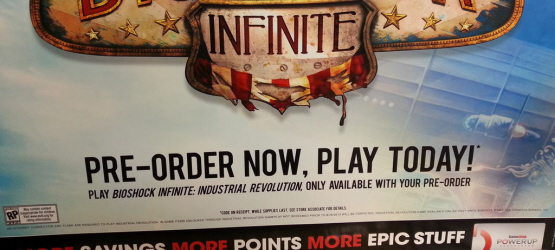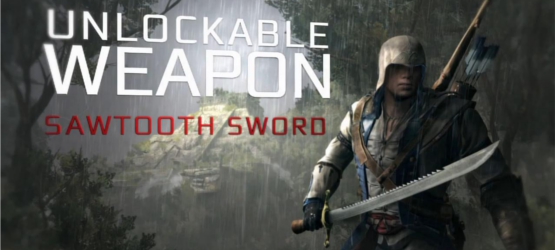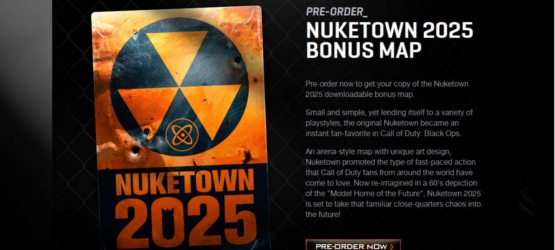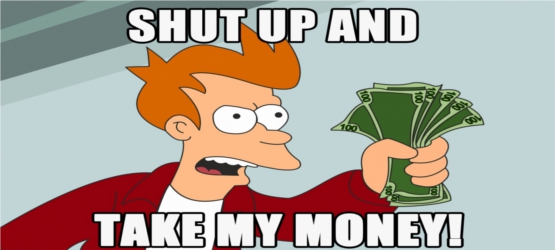This week, Vivas is bringing you two editorials as penance for not having this one out last week, and weighs in with this thoughts on pre-order bonuses and reminisces about the early days of pre-ordering. He also points out a couple questions that you, the readers, should ask yourselves when pre-ordering a game.
I want to start this piece by making it clear that there’s nothing inherently wrong with pre-orders. Some would argue that they’ve gone downhill in terms of quality. More to the point though, they no longer act in the manner they originally did when they were first conceived. There was a time, in the long, long ago, when pre-order bonuses guaranteed access to something exclusive. It might have been a collector’s edition poster, a figurine, or even something as simple as a discount. But the key here, is that they were guaranteed to anyone who pre-ordered. These days, the internet is rife with apocryphal stories about GameStop not having enough pre-order vouchers to satisfy the demand of customers. As a result, people who put money down upfront for certain pre-order bonuses wind up falling victim to a first-come, first-served mentality of which they were not aware.
These days I personally have decided to err on the side of caution and not pre-order anything accept for limited and collector’s edition packages that I simply must have, and even then I’m not pre-ordering them for the pre-order incentives that are being bandied about. Rather I want what’s inside the big box of collector’s edition stuff. However, this got me thinking about what kinds of questions people need to be asking regarding pre-ordering a game. The first question is the most obvious and easiest to answer “Is this worth it?” The second and third questions are more intriguing and really get to the heart of what pre-orders are all about. “Who is this for and why is it here?” With respect to these two questions, the answers are business related. The perception is that the pre-order bonus is geared toward us, the consumers, of a given product.

However, that couldn’t be further from the truth. Nothing comes for free and a Quotables article posted on Lifehacker two years ago sums up the mentality that actually goes into offering something for free. The article posts a quote from user blue_beetle that was originally posted on MetaFilter concerning changes made to the popular social aggregation news site Digg. blue_beetle posited that “if you’re not paying for something, you’re not the customer; you’re the product being sold.” The article then goes on to use Google as an example of a service that we consumers perceive to be free, but that is actually paid for using our personal data. Indeed this is true within the video games industry of today. Online passes, Ubisoft Uplay, Warner Bros. WBID….these all offer free items for certain games if you have accounts with them or other special bonuses, but really they’re just a means of marketing to us directly. Effectively your personal headspace is for sale, because while you’re thinking about pre-ordering a game you aren’t thinking of spending your money elsewhere. It’s all in service to a sale waiting to be made.
Furthermore, publishers may use the numbers from pre-orders to determine whether a specific game deserves a sequel or the manner in which a game should be marketed, and how much needs to be spent. For developers, pre-order numbers can be useful in securing additional funding for games or increasing the hype for a game that is not well known to begin with. In fact, high pre-order numbers can facilitate a positive feedback loop in which publishers seeing the high initial numbers of (mostly) guaranteed sales may use that fact in advertising for the game. This also feeds into making any bonuses attached to the game feel more rare and scarce which only fuels the mania to get a pre-order before the bonuses are gone.

For those of you that think this practice is deceptive or manipulative then allow me to welcome you to the modern day game buying culture. Of course, I want to relate back to my original point about how not all pre-orders are bad. One such case in point, was Double Fine’s Kickstarter campaign. Kickstarter is more than a glorified pre-order scheme, and rather a means of funding the game and allowing it to come out. While it’s true that most of the backers of that Kickstarter will get the game when it is released, many of the exclusives (the digital DLC and the physical items) will not be sold outside of the Kickstarter. More importantly, the Double Fine campaign exemplified, in the eyes of many, the true spirit of Kickstarter. Double Fine’s Kickstarter represented a project that would not have been done if it had no fan support. As a result, the campaign is still one of the most successful campaigns in the history of the service (earning over $3.3 million). It has even inspired Double Fine to look into going completely independent.
There was also a time in the distant past when pre-ordering a game was the only way to guarantee you got a copy at launch especially back in the days when the primary format for a video game was a cartridge. Nowadays retailers order a large enough stock to satisfy any level of software demand, and if one retailer runs out there are several others that can pick up the slack for eager customers. It also helps that console manufacturers have moved away from cartridge formats in favor of CD based media as it’s easier to mass produce large quantities at a cheaper cost. Now with the digital distribution of games becoming commonplace it’s even easier and more cost effective.

Pre-ordering games also brings with it a set of calculated risks, the most obvious one being that you haven’t played the game yet and have no idea of its quality. But what if it’s a franchise that you love? Even in those cases you may want to exercise some restraint. You don’t have to be part of the zeitgeist as game rarity is a thing of the past. As cautionary tales that exemplify this idea, consider the recent releases of Call of Duty: Black Ops II and Assassin’s Creed 3. Both games currently have technical issues that in some cases are making them unplayable for large groups of consumers. So when you pre-order take a deep breath and ask yourself if it’s absolutely necessary to have the game at midnight the day that it launches.
Former GameSpot editor and now Editor-in-Chief of Giant Bomb, Jeff Gerstmann, once said on the June 19, 2012 Giant Bombcast (around the 1:24:50 mark) on the subject of pre-orders with respect to the game Steel Battalion: Heavy Armor: “It gets back to the core ideal as a game playing consumer: don’t pre-order anything ever.” While I can’t deny the simplicity of his logic as well as the myriad of times when it actually holds true (especially within the context of a discussion of Steel Battalion: Heavy Armor), I think the better solution is to ask yourself a few questions before ever pre-ordering something. That way you can truly decide if you’re ready to face the consequences of your purchasing decision before committing any money to it. I know that this sounds like common sense, but you would be surprised how fast the phrase ‘buyer beware’ is forgotten when a new multiplayer unlock is handed out, or a new kind of axe is offered. More of us need to actively try to see through the hype. Then stop, think, and decide what’s best. Who knows…if enough of us employ this strategy maybe we can get better quality pre-orders that actually add something of substance to the games we buy.








